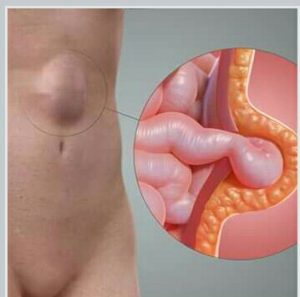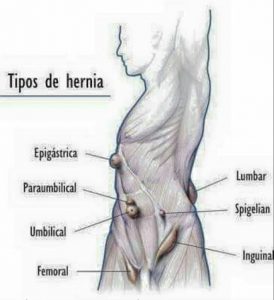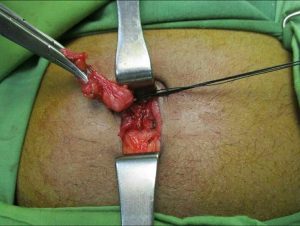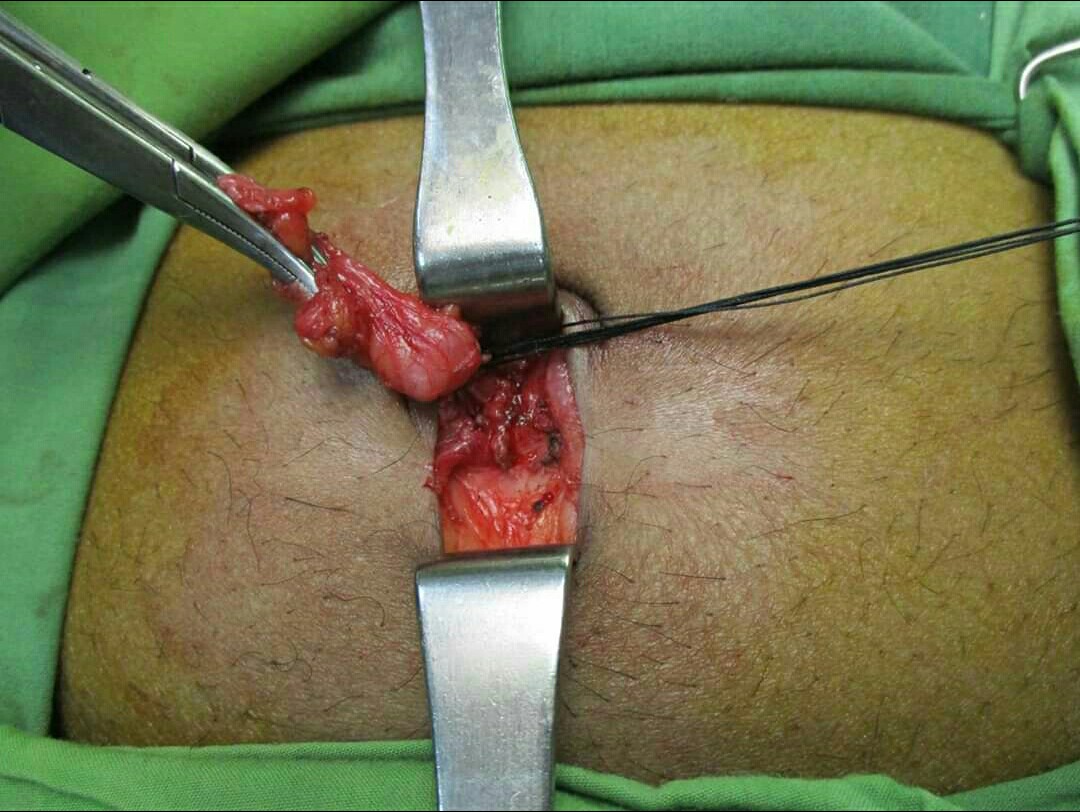Hernia: Causes, Types, Symptoms, Locations, Pictures and Treatment
In this article, I will write a short post on something many of us have seen either in ourselves or in someone we know- they have a swelling in their tummy that comes out and go back in when pressed.
The medical term for it is “#Hernia”.
What is a Hernia?
A hernia is a medical term that refers to protrusion of the body contents/organs through the body wall because of a weakness in the muscles of that area (which should ideally prevent such a protrusion from happening).
It can happen in tummy, groin, scrotum.
How does a Hernia happen?
Normally, the tummy wall has several layers of muscles, which keeps the intestine and internal organs in place. If, for any reason, there is a weak point in the muscles then part of the intestines can push through the weak part causing a bulge there.

Why is a #Hernia dangerous?
Generally hernias are not immediately life threatening. They are usually harmless most times.
But don’t get carried away, that can change depending on the size of the hernia, the location and sudden trapping of the intestine/organs in the hernia.
I will explain what I mean.
What happens in a hernia is that there’s an opening in the tummy/groin that allows the intestine to go in and come out repeatedly without any pain or problems initially.
As time goes on, it may suddenly happen when the intestine gets trapped.
Now the implication of a part of the intestine getting trapped in a hernia is that portion of the intestine may become deprived of blood supply which gives oxygen and nutrients, and IF nothing is done to correct that as an emergency, that part of the intestine will die off.
And IF that part of the intestine dies off (what doctors call ‘ischemia’), the dead bowel has to be cut off, otherwise the life of the person is at risk.
Because that bowel can get infected and with the spread of infection to the body, a sudden death is inevitable.
So in simple terms, while a #hernia usually doesn’t tend to cause problems and can easily be pressed back in after it comes out and goes back in after you lie down, please note once you have a hernia, it is BEST to speak with your doctor to assess the risks I just spoke of.
What are the different types of Hernia?
➡️Inguinal hernias- around the groin, commoner in men
➡️Femoral hernias- in the upper thighs, commoner in women
➡️Umbilical hernias- around the navel, common in children and overweight adults
➡️Epigastric hernia: An epigastric hernia is a type of hernia in the epigastric region of the abdominal wall. It’s above the belly button and just below the sternum of your rib cage.
➡️Incisional hernia- common after a surgical scar.

Pls note umbilical hernia which is quite common in children and overweight adults.
Generally it’s usually harmless and there’s no need worry as it resolves on its own by 1 year old. But if it persist beyond 5 years of age or if they are very large, treatment is advised.
What causes a hernia?
Hernias are caused by a combination of muscle weakness and strain. Depending on its cause, a hernia can develop quickly or over a long period.
Common causes of muscle weakness include:
💠Age
💠Chronic cough
💠Being born with tummy wall weakness
💠Injury/Surgery.
Factors that strain the tummy muscles and may cause a #hernia include:
➡️Pregnancy especially if twins or more
➡️chronic constipation
➡️Obesity
➡️Lifting heavy weights
➡️Fluid in the abdomen like in liver/heart failure
➡️Previous abdominal surgery
➡️Persistent coughing
What are the symptoms of a #hernia?
💠Generally painless, but may be uncomfortable
💠Reducible swelling on coughing, sneezing, laughing or lifting heavy objects
💠Belly button swelling on child crying
Usually becomes painful when it gets trapped and it’s a sign of emergency.
How is a hernia treated?
A #hernia can be treated using lifestyle measures and/or with surgery.

Lifestyle measures are usually advised if the #hernia is small and not problematic, but once it becomes large, embarrassing, problematic or disturbing, surgery is advised.
Lifestyle measures used to prevent or manage hernias include the following:
💠Stop smoking- it can cause chronic cough
💠Avoid constipation- take lots of water, fruits and vegetables to avoid straining in toilet
💠Avoid lifting heavy objects
💠Cut down your weight.
Thanks for your time.
Dr Olunfunmilayo





















